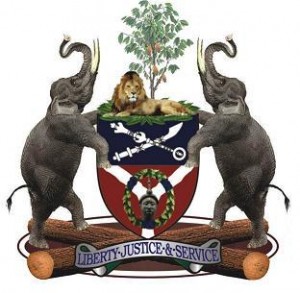
Civic Group’s Report Endorses Governor Aregbesola’s Reclassification Of Schools

A new report by the Civil Society Network Against Corruption, CSNAC, has lauded the recent move by Governor Rauf Aregbesola of Osun State to reclassify the public schools in the state.
The report made noted that the reclassification is an innovative and sustainable way of implementing the new 9-3-4 educational policy of the federal government.
While it stated that the government’s policy has increased the standard of infrastructure in public schools; it also noted that the controversy that had arisen from the merger of the schools was “not essentially political,” but opposition politicians had feasted on the feud.
Last October, Mr. Aregbesola embarked on a massive education reform in the state that saw the reorganization of the school system into elementary (Primary 1 – 4), middle (Primary 5 – JSS 3) and high school (SSS 1 – 3) categories.
But the most controversial part of the reform was the government’s decision to merge schools. For instance, male students were introduced into the Baptist Girls’ High School, Osogbo; while hijab-wearing pupils were merged with the pupils of Baptist High School, Iwo.
The attendant controversy led to civil society groups dispatching a Governance Monitoring Team delegation to Osun State who, for four days, met with stakeholders in the educational Sector of the State.
MIXED CONCERNS
The Osun State chapter of the Christian Association of Nigeria, CAN, are one of the fiercest opponents of the education reform.
According to CSNAC’s report, CAN and the Baptist Convention insisted that there were no prior and informed consent of Christians on the reclassification of schools by the state government.
They also insisted that: “The Christian schools should retain their age-long identities and culture threatened by the reclassification policy.
“That the state government did not conduct enough consultations before the school reclassification was embarked upon.
“That the reclassification could lead to faith-based feud in the State of Osun.
“That the Baptist Mission cherish the legacy of segregated learning at the Baptist Girls School and is resolved to protect same.
“That the traditional Christian schools will not allow the wearing of Hijab by Muslim students transferred into the Christian schools,” the report stated.
The report also said that the Christian community maintained that the new common public school uniform has an inscription ‘ELLA’ which they believe is the name of a Yoruba deity and this could be a way of initiating children into ‘voodoo’ or occult
The Christian community also acknowledged that the “notorious” inclusion on the ‘Opon Imo’ is actually not ‘Ifa’ but a book titled ‘Asa ati Oosa Ile Yoruba’ (Culture and Deities of Yoruba Land) but they nonetheless considers this uncalled for and an introduction of children to traditional worship.
“They called attention to the derelict state of schools’ facilities owned and maintained by government in sharp contrast to the good and attractive state of missionary owned and maintained facilities like church and halls.
“The ‘schools merger’ is wrecking hardship on pupils as transport fare for some have gone over N500 daily.
“They referred also to a notice banner in front of the public Baptist Girls High school gate that forbids any student wearing hijab from entering the premises. This ban is enforced strictly by the security personnel hired by the church.
“Expressed concern that the wearing of ‘hijab’ is a mere subterfuge for indulging in examination cheating and to conceal teenage pregnancy,” the report added.
The Muslim community in the state, however, noted that the stereotyping of the reclassification policy from the prism of the governor’s religion (Mr. Aregbesola is a muslim) was a “traditional misconception.”
The Muslim leaders also accused some Christian-named schools of banning the teaching of Islamic Studies.
The civil society group also consulted other stakeholders such as the Parents and Teachers Association, Nigeria Union of Teachers, the All Nigeria Confederation of Principals of Secondary Schools, market women and men, and Mr. Aregbesola among others.
Mr. Aregbesola, in his submission, maintained that the reform was designed to solve the state’s growing educational crisis.
“The schools have been taken over by the state government since 1975 with adequate compensation paid to the affected owners,” Mr. Aregbesola said.
“The education policy takes into consideration the ultimate good for the highest number of the people of the State of Osun, irrespective of religious considerations,” he added.
The report recommended that a Monitoring Team be set up comprising of representatives of CAN, Muslim groups, the State Government and Civil Society Groups.
“Given the utilitarian content of the new education policy, there cannot be an end point in consultation and dialogue on the policy and its merits. The stakeholders, government, CAN, Muslim groups should begin a monthly public dialogue on the educational policy,” the report stated.
“There should be and expanded dialogue table to involve leaders of ethnic communities, artisan groups like Nigerian Automobile Technicians Association, (NATA), Civil Society Groups and Nigerian Union of Road Transport Workers, (NURTW).
“After one year of policy implementation, the state government should embark on Education Review summit to be able to review the strength and weaknesses of the policy.”
The recommendation acknowledged that the Hijab was a fundamental rights issue and recommended that Omoluabi garment (owned by the state government), in consultation with stakeholders (NUT, ANCOPPSS, PTA and the Muslim Community) be contracted to design appropriate Hijab that will fit well with the schools uniform.
“Subsequently, pupils/students should be required to wear only the approved hijab on top of their school uniforms,” it added.
PREMIUM TIMES



